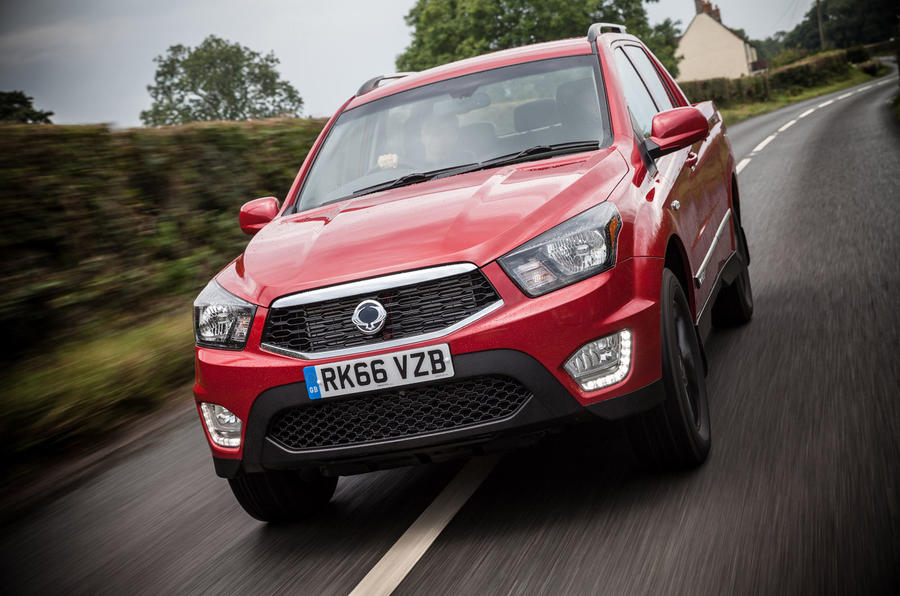What is it?
The Ssangyong Korando Sports pick-up truck proved to be a bit confusing to customers, according to its maker. After all, the Ssangyong Korando SUV in the Ssangyong line-up is unrelated to the pick-up, and labelling it with a 'Sports' moniker is fairly misleading, to say the least.
So, for this facelift, Ssangyong has erased the Korando Sports name and replaced it with Musso, a name borrowed from the first ever car it introduced into the UK in 1995, and one that the Korean manufacturer believes will be more marketable.
As well as a new name, the Ssangyong Musso gets the brand's latest 2.2-litre diesel engine (replacing the 2.0-litre diesel from the Korando Sports), a new dashboard and a new six-speed automatic gearbox, all for a price increase of around £1000 over an automatic Korando Sports. The Musso is available in manual-only and sparsely-equipped SE trim, but we’re driving an automatic version in pricier EX specification.
The pick-up segment is having a resurgence. Trucks like the Toyota Hilux, Nissan Navara and Mitsubishi L200 have all been recently updated with a clear aim to feel more like an SUV than a commercial vehicle - albeit with varying levels of success. In any case, it’s still a competitive class, and the Musso will have to prove that it offers more than just a cheap price tag to stand out from the crowd.

















Join the debate
Add your comment
Pickups
PS Are Great Wall pulling out of the UK due to Euro 6 compliancy?